The monsoon season brings respite from the scorching summer heat. However, it also brings along numerous diseases like dengue, malaria, chikungunya etc. Mosquitoes breed rapidly in stagnant water during monsoons, increasing the risks of vector-borne diseases.
Post your Requirement
Proper doors and windows can act as barriers, preventing the entry of mosquitoes and insects into your home. uPVC (unplasticized polyvinyl chloride) doors and windows are an excellent choice as they are weather-resistant, durable and help keep your home disease-free.
Why Monsoons Lead to Increased Cases of Diseases
Following are reported diseases during monsoon:
- Stagnant Water Provides Ideal Breeding Grounds for Mosquitoes: During monsoons, waterlogging and stagnant water accumulate in various areas. This provides an ideal breeding ground for mosquitoes which causes dengue. A single stagnant water body can lead to thousands of mosquitoes within days.
- Increased Humidity Favors Mosquito Breeding: Mosquitoes thrive in humid conditions. The high humidity levels during monsoon combined with stagnant water massively boosts mosquito breeding.
- People Stay Indoors More: During heavy rains, people tend to stay indoors. This increases chances of transmission if a mosquito makes its way into the house.
- Contaminated Water Causes Water-Borne Diseases: Contaminated water also leads to diseases like cholera, jaundice, diarrhea etc. Flooding causes mixing of drinking water with sewage, increasing health risks.
- Lower Immunity During Monsoon: Our immunity tends to dip during monsoons due to lack of sunlight exposure. This makes our body more vulnerable to diseases.
How uPVC Doors and Windows Can Help
uPVC doors and windows can act as barriers to prevent mosquitoes and insects from entering homes. Here are some of the ways they help:
- Insect Screens– uPVC windows come with built-in insect screens. These screens allow air circulation while preventing the entry of mosquitoes and flies. Some common types of screens include:
- Pleated mesh screens – Allow excellent ventilation while keeping insects out.
- Sliding mesh screens – Mesh is fitted on a sliding track for easy functionality.
- Pull-down mesh screens – Can be pulled down when required to cover the window.
- Tight Fittings– uPVC Window frames are tightly fitted with very little gaps in between. This blocks any entry points for mosquitoes. Old wooden windows and doors have plenty of gaps which mosquitoes exploit to enter homes.
- Weather Resistance– uPVC is highly weather resistant and does not warp or rot away with water exposure. Monsoons can damage wooden doors and create gaps for mosquitoes to enter. uPVC retains its shape for long periods.
- Noise Reduction– uPVC windows and doors provide excellent noise reduction. This allows you to sleep peacefully even during heavy rains without having to keep windows open for fresh air.
- Low Maintenance– uPVC requires very low maintenance compared to wood or metal. The tight fitments prevent any damage from water ingress. You don’t have to stain or paint them regularly. Just an occasional wipe is enough to keep them clean.
- Strength and Durability- uPVC Door frames are highly durable and do not corrode or rust. They retain their structural integrity for years to come. The strength ensures the tight fitments are maintained over long term use.
- Custom Design Options- uPVC windows and doors come in many custom designs in terms of colors, opening styles, glazing and hardware. You can choose options that enhance ventilation while keeping mosquitoes out.
- Other Health Benefits– uPVC doors and windows are termite-proof unlike wood which can harbor termites.They prevent dampness and growth of mold in monsoons which cause allergies and asthma.Noise reduction promotes better sleep and health.The lack of corrosion and low maintenance requirements make them a hygienic choice for homes.
The monsoon season poses major health risks due to spike in vector-borne diseases like malaria and dengue. Mosquito breeding in stagnant water is the main culprit. uPVC doors and windows act as highly effective barriers denying entry points to mosquitoes and insects. Their tight-fitting, weather resistant and durable nature keeps your home dry and hygienic. Investing in good quality uPVC windows and doors is a great way to safeguard your family’s health in the monsoon season.
FAQs
Q-1. Are uPVC windows and doors expensive?
A-1. Not at all. The affordability of uPVC has contributed to its popularity in India. Homeowners can enjoy exceptional performance and style while saving money compared to alternatives like timber and aluminum.
Q-2. What styles are available for uPVC windows and doors?
A-2. uPVC products are highly flexible and can be crafted in various styles. Windows can be designed as casement, tilt & turn, vertical slider, flush sash, and more. Doors come in bifold, patio, French, and traditional entrance designs.
Q-3. How do uPVC windows compare to aluminum windows?
A-3. While aluminum is a competitor, uPVC remains a sensible choice due to its affordability, durability, and longevity. It offers a cost-effective solution without compromising on performance.
Q-4. What colors are available for uPVC windows and doors?
A-4. Beyond the classic white, uPVC can be customized to various tones suiting Indian preferences. It can cater to a variety of color choices, adding vibrancy to Indian homes.
Q-5. What is the lifespan of uPVC windows and doors?
A-5. With proper installation, uPVC windows and doors have an average life expectancy of around three decades. Their durability makes them a sound investment with minimal maintenance requirements.
Q-6. Why are uPVC windows and doors popular in India?
A-6. The popularity is attributed to the affordability, reliability, and adaptability of uPVC products. They are designed to be dependable, offering hassle-free operation.

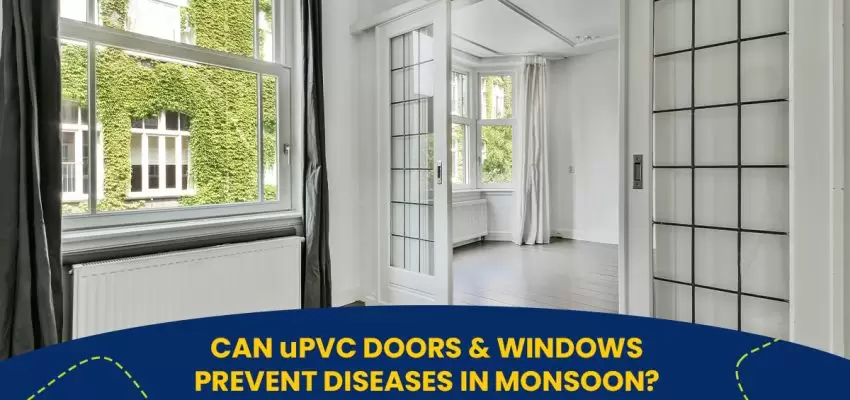
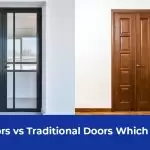
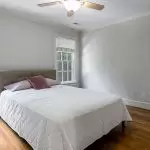
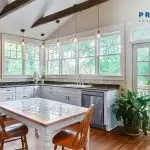
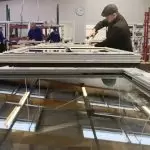

















Post A Comment